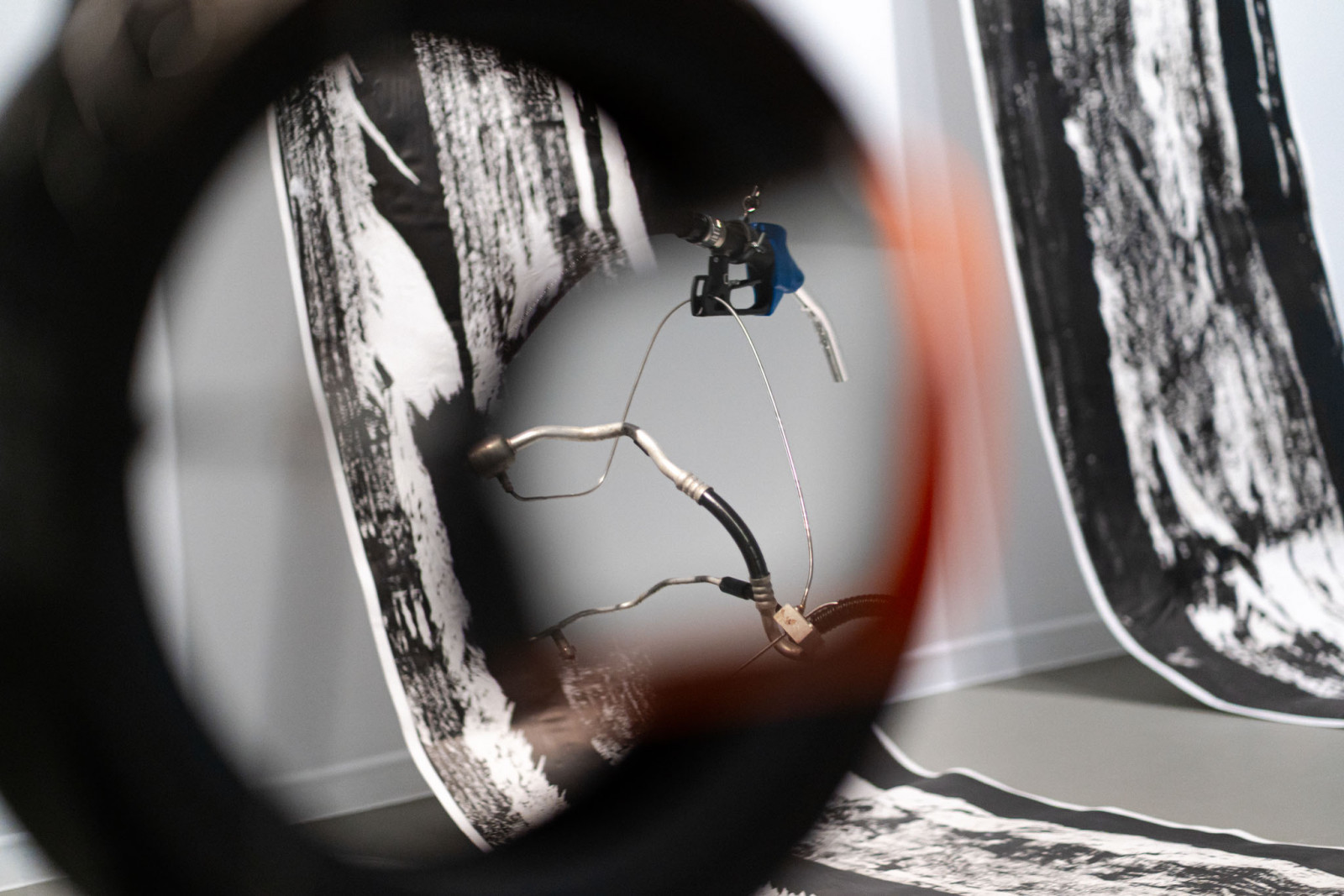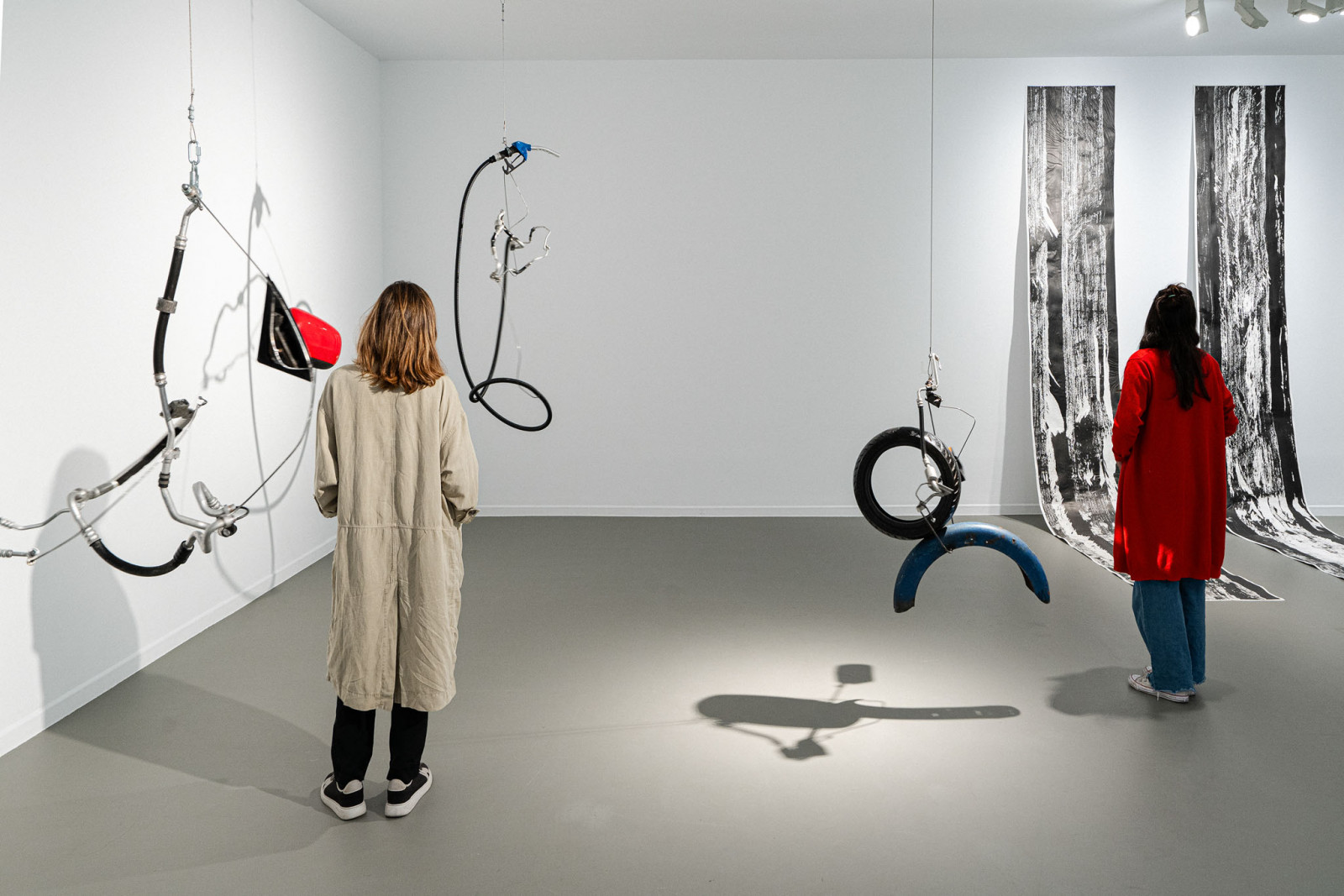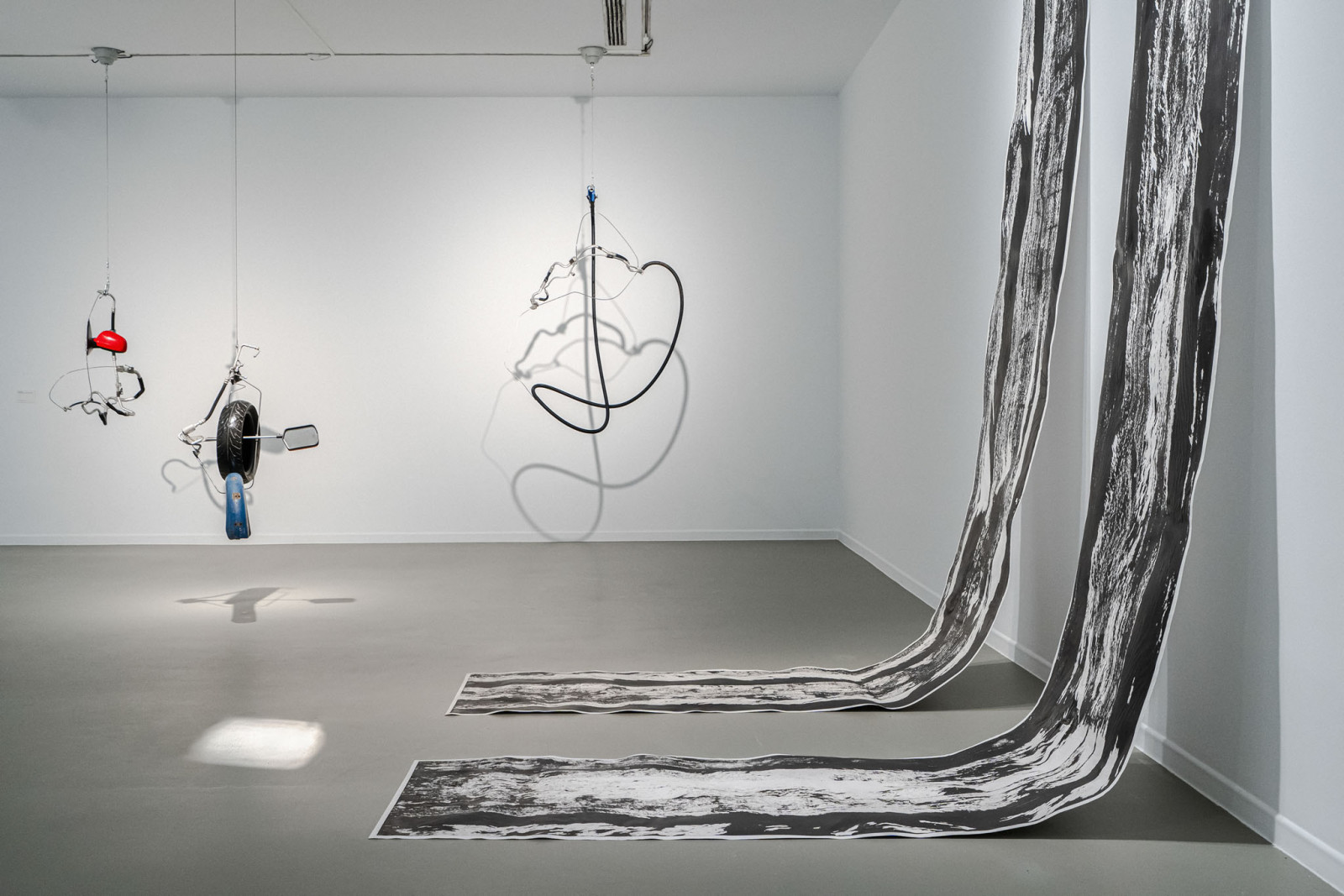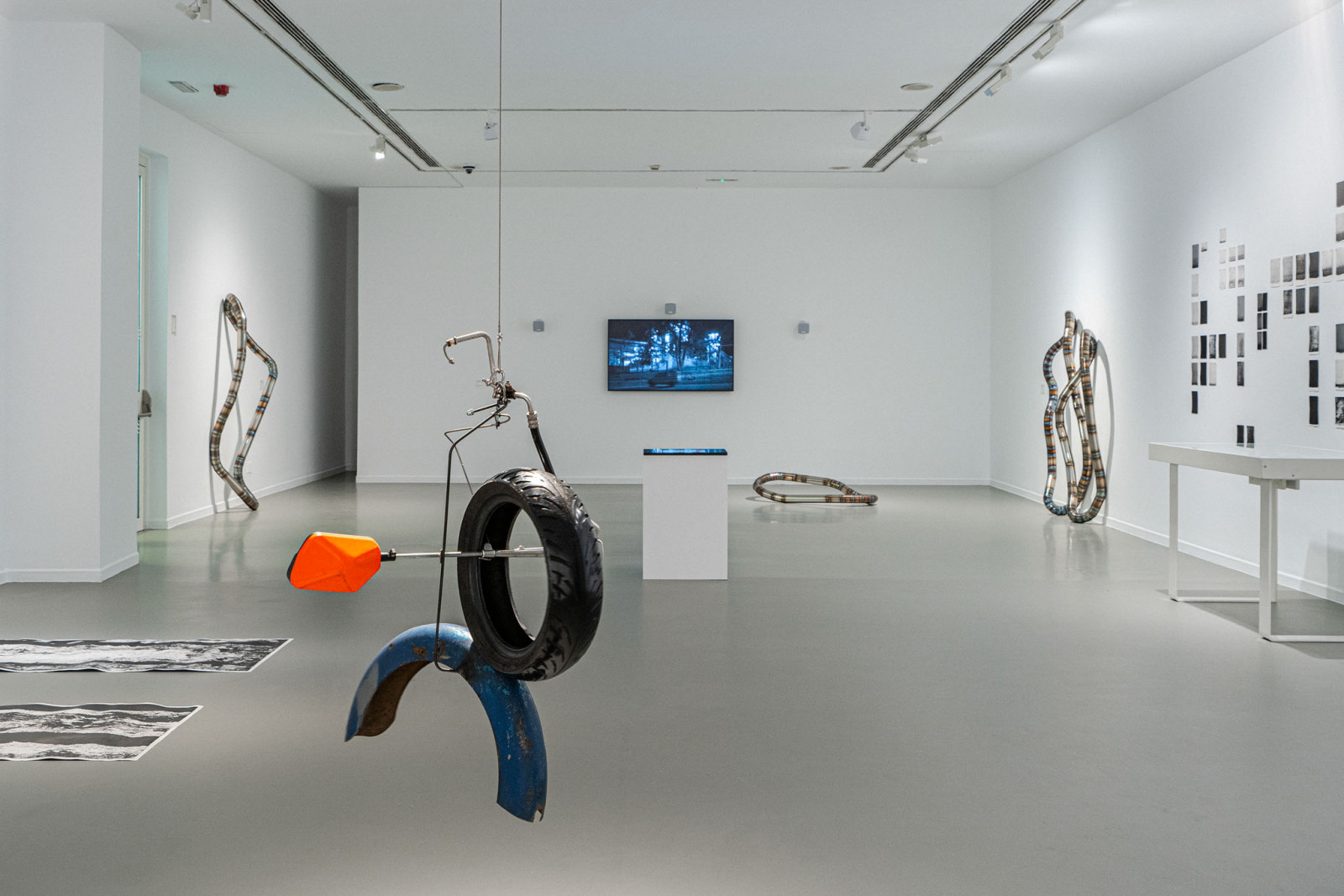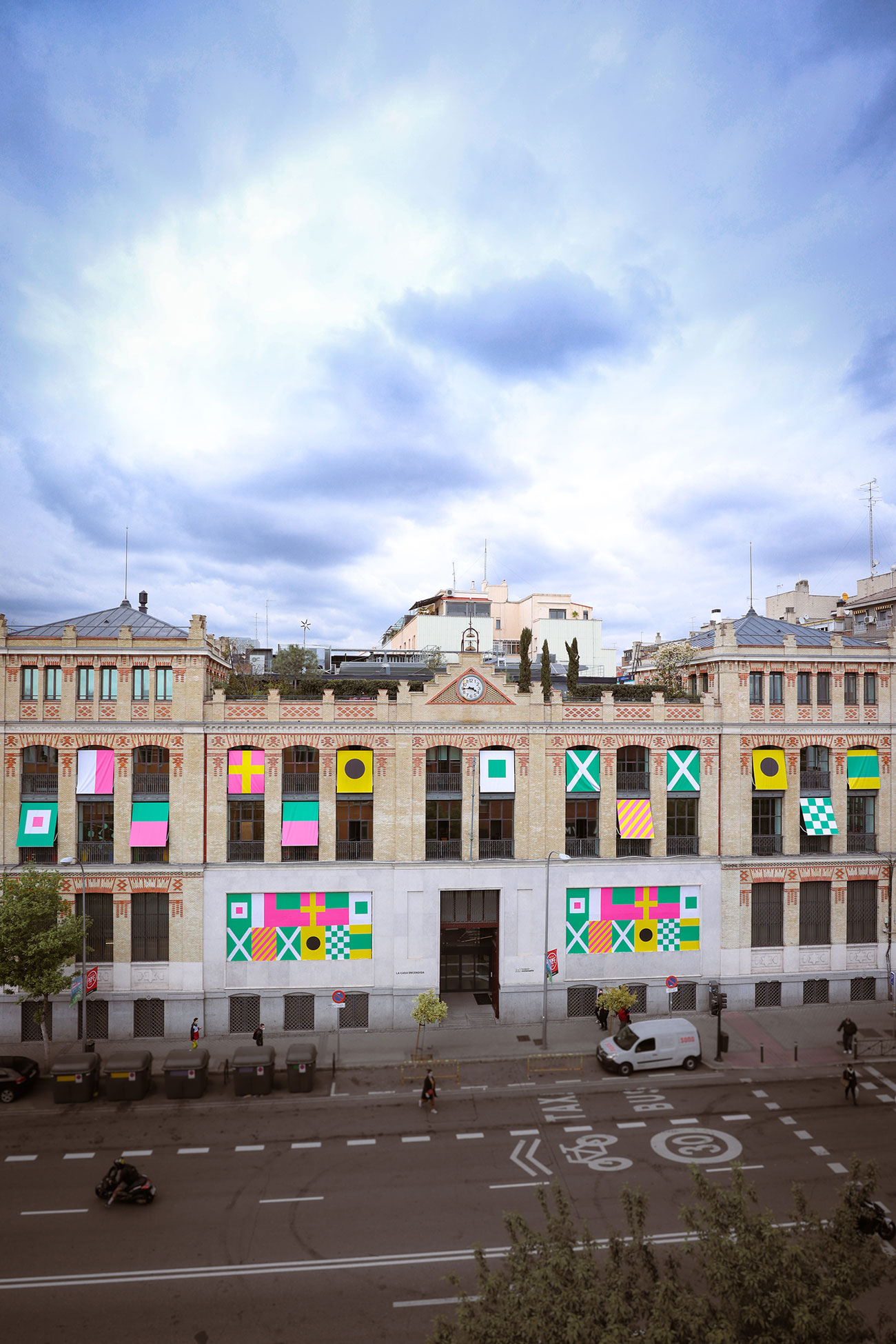Where the fumes mingle, I wait for a seed (Donde cruzan los humos espero una semilla)
Within the programming of
Inéditos 2024| Location: | Sala D |
An exhibition project that invites us to explore the legacies and contradictions of the petroculture.
Borrowed from a line of the poem Kerosén [Kerosene] by the Venezuelan poet Valenthina Fuentes Meleán, Donde cruzan los humos espero una semilla [Where the fumes mingle, I wait for a seed] is the title of the exhibition curated by Maria Anna Zazzarino (1988, Caracas, Venezuela), which explores the contradictions of a time like the present that is characterised by the rejection and interruption of the fossil culture while remaining fascinated by it. It is a curatorial proposal that questions the notion of impasse as a stalemate or potential in the context of fossil modernity which, as the critic Frederick Buell asserts, is always found in the interstices between exuberance and catastrophe. The works of Adrián Balseca, Alba Lorente, Ana Alenso, Christian Lagata, Isabel Carralero, Monique Michelle Verdin, and Nemestudio examine these contradictions but without any attempt to resolve them, inviting us to imagine other speeds, rhythms and possible infrastructures.
Fossil modernity
“To be modern,” say the cultural critics Imre Szeman and Dominic Boyer, “is to depend on the capacities and abilities generated by energy.”
Ever since the Industrial Revolution, energolatria imaginaries have associated the idea of progress with the power of energy, where the ability to generate and use kilowatts has become the standard for measuring human well-being, development and progress. The coal boom ushered in an energy system that would gradually abandon the energy generated by the muscle effort of humans and animals for a system of mineral energy that permitted the extraction, circulation and sale of energy on a global scale, creating new fantasies about an incremental work capacity while simultaneously promising a new autonomy. This marked the beginning of a planetary-scale change that would be intensified by the expansion of oil during the global post-war period. If proximity to coal revealed it to be dirty, dark and labour-intensive, oil promised cleanliness, efficiency and unlimited mobility and connectivity. Based on that promise, oil became the substrate of global capitalism.
The modern ideals of acceleration, progress, endless growth and breakneck speed have formed an amalgam with the material possibilities of oil to configure what has come to be known as the petroculture: in other words, a constellation of values, beliefs, practices, dispositions, affects, sensory experiences, and orientations all founded on the extraction of oil.
In privileged areas of the planet, the petroculture is manifested in the speed of cars, the spreadability of lipsticks, analogue photographs, the sealability of Tupperware, the shiny colours of Formica, the lubricity of Vaseline, the surface of your iPhone, the ink used to print this text, and the ever-hotter asphalt under your feet. In short, it is a constellation of objects and sensory experiences made possible by the social transformations that have given rise to middle-class lifestyles. But for those who live in places of the planet perforated by oil rigs and ravaged by oil pipelines and refineries, close to rising wave heights or on migratory paths beneath the extreme temperatures of deserts, petromodernity is synonymous with risk, precarity, exposure, toxicity, disaster, breaking point and exhaustion.
Impasse
The horizons of petromodernity are characterised by interruption, recurrence, anticipation and blockage; an impasse.
The cultural critic Heather Davis suggests that the very materiality of oil generates a temporality of pausing, of anxious expectation, delay and suspension. What is oil extraction, asks Davis, if not the release of millions of years of sunlight fossilised beneath the earth? And what is the present if not the awareness of a series of postponed consequences conditioning the future of the planet?
Between a transition that never arrives and the anticipation of a climate catastrophe, the cruel optimism of contemporary fossil modernity is marked by waiting, paralysis, deadlocks and pause, by moving to stand still, getting stuck halfway, taking one’s foot off the gas. But where have we really ended up with the engines running at full throttle? At invariably predetermined destinations, endless roads and the excesses of runaway combustions? The orientations of the impasse suggest an openness to other rhythms, speeds and sensibilities. In After Oil, the Petrocultures Research Group invite us to think of the impasse not as the foreclosure of possibility but as a moment of uncertainty that is nevertheless full of potential.
Far from exuberance and situated at the rupture, we wait for the seed of a future planet to break the spell and allow the proliferation of multiple sensory experiences, habitabilities and flowerings.
